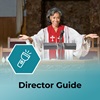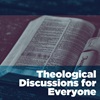As a Christian educator, my goal is not to lecture, or even to lecture with excellence. My goal is to teach in such a way that students both learn and employ their knowledge. Teachers should view themselves as nothing less than disciplers. The knowledge we communicate affects more than the minds of our hearers; it should change lives.
In particular, I want to see the members of my group develop five qualities as a result of my teaching.
Deepening Commitment to Christ
Secular education asks what students know, not who they are. Christian education asks not how much students know but how closely they are following Christ.
In Christian education what goes into the head must move to the heart, compelling deeper commitment and greater obedience. Spiritual knowledge is never intended for the head alone—never focused on skills alone, facts alone, or principles alone. All knowledge must be dedicated to the glory of God.
While we may be tempted to assume that commitment is the hearer's responsibility alone, we know better. Teachers have a role to play, especially in calling people to obedience concerning what they have heard. I have found that I have a better chance of creating committed learners when I challenge my group with the implications of what they are learning, spelling out the application in specific terms.
Growing in Character
I want to see the fruits of the Spirit developed in my group. Mere knowledge is not my goal, but character.
I can instruct in such a way that people are satisfied with listening while not doing. I can make them comfortable with increasing spiritual knowledge while they lack commitment and obedience. I can enable hearers to be puffed up with knowledge rather than humbled by their disobedience to that knowledge. If hearts are not being renewed along with minds, I have failed.
Showing Competence to Live Out the Faith
I am dedicated to giving my hearers the skills, knowledge, experience, and character necessary to bear fruit for Christ. I feel the same way about equipping believers as a sergeant must feel in boot camp. I know that no Christian can become capable and qualified for the Lord's service without being taught certain skills. I don't want anyone to leave my group and be incapable of accomplishing God's purposes.
I think a Christian must be competent in three areas:
- Knowledge. Paul admitted that he lacked rhetorical skills and personal presence to impress the Corinthians, but he stressed that he did have truth—crucial knowledge that was far more important. A student without a grasp of the Bible is a warrior without weapons. I am a teacher because I'm convinced that knowledge makes a difference, especially in how believers live and how well they help others.
Knowledge is more than the accumulation of facts. It includes the intellectual ability to critique contemporary books, song lyrics, and movies. So when discussing a modern book or movie, I regularly ask my group, "What are the values of the piece? What are the presuppositions? What is the scriptural perspective on this? What difference would it make if we acted on this way of looking at the world? How can we counteract the negatives?"
I am committed to training people who can learn for themselves—who do their own decision making, their own problem solving, their own creative thinking, and their own biblical interpretation. I want them to learn not only what and why, but how. - Emotions. True knowledge prompts feelings. Several years ago I flew to Africa to see Byang Katto, a key leader of the African Evangelical Fellowship. I took in the sights and sounds and smells of mission life in Nigeria. When we drove in the back country of Nigeria, I have never felt so close to death—people drive like crazed race drivers. And when vehicles break down, they just stop in the middle of the road. You can be speeding over a hill and whack—it's all over before you see anything.
Well, when I returned to my room, Jeanne said, "Howie, what in the world is the matter?" "Why?" I replied. "You're white as a sheet," she said. I described my ride and said, "Jeanne, we have to pray for these missionaries with a whole new emphasis! They face this kind of danger every day."
My personal knowledge of that missionary's experience improved my prayers for all missionaries. I now feel their challenges and dangers. Feelings aren't everything, but they are a vital part of a full apprehension of the truth. If we're not careful, we can suck all the blood out of the heart with facts and information. Instead, I want to enlarge my hearers' hearts as much as I do their brains. I want them to know the truth and feel strongly about it. - Action. A competent Christian acts out the faith. Jesus was powerful in word and deed—a man of action. So are his followers. Action, of course, fulfills and strengthens knowledge and feeling. Consequently, it's a mistake to delay ministering to others till "someday when I'm ready to serve the Lord."
So I arouse my group to ministry. I inquire personally about their spiritual gifts, whether they are using them and what obstacles they have come up against. Their particular ministry may have little to do with the subject I am teaching, but it directly affects how well they assimilate any knowledge. Ministry plugs knowledge into real people and their 110-volt problems.
Creative in Ministry
I don't want to produce cookie-cutter Christians that are patterned after my image. Everyone has a unique personality, gifts, and calling; I want to teach each person to make the most of that uniqueness. I want people to be resourceful at getting answers from the Word, to learn from their creative God, to find ways to minister to other's needs, and to solve their own problems. I want them to find and apply principles, not formulas, in different settings and situations.
I want people to learn and grow on their own, not to depend on my answers. That's tougher than it sounds, for the more insightful the teacher, the more dependent the hearers become. So I've had to check my impulse to impress people with my insights and instead challenge them to think. I spend a lot of time asking questions, letting students struggle, pointing them to the One who wants to help, letting students get into sink-or-swim situations. Need, I've noticed, is like flint: it sparks creativity.
Effective Communicators
Communication—receiving and giving information and understanding—is at the heart of our faith. We cannot grow in our relationship with God or reach out effectively to others unless we learn some fundamental communication skills. In particular, I want my group to gain proficiency in the two main areas of communication.
- Listening. Good communication begins with good listening. And good listening begins with hearing and understanding God's Word. We cannot hope to speak to basic human needs until we understand what they are and how to deal with them from God's perspective. So, I am committed to training people to read and study the Scriptures for themselves. I do this not by repeatedly exhorting them to read the Word, or just holding them accountable for daily devotional reading, but by whetting their appetite for the Word.
I work hard to make the Bible relevant, alive, and exciting. In addition, people will more readily read the Word when they have a frame of reference for understanding it, so I equip hearers with basic principles of interpretation and the big picture of Scripture.
A Christian teacher trains disciples who listen intently to the Word of God, but who also are aware and interested in others. They aren't just interested in expressing their own opinions. They are curious, hungry for knowledge, sensitive to what others think, and retentive. - Speaking. "Speaking" takes many forms, of course, one of which is writing. In order to help group members learn to express their thoughts clearly and cogently, I urge them to record on paper their walk with the Lord—to write down spiritual goals, devotional thoughts, prayers, personal evaluations, and Bible studies. Such writing lays the groundwork for any speaking they end up doing, whether formally or not.
I may not insist that everyone be able to speak in front of a group, but I do want them to be able to tell others why they believe in Christ—or in Peter's words, to give a ready answer for the hope that is in them. Furthermore, I encourage my group to verbalize their ideas, either privately or with others. People may think they know something after listening to me teach or after reading a book, but when they try to tell someone else what they know, they discover which areas of the subject they know little about. That encourages them to more thorough study. Also, the very process of telling can clarify what is foggy in the mind. We learn by speaking, just as we learn by writing.
Knowing the Greatest Joy
One day when my daughter was in high school, she said to me, "Daddy, I know you're busy, but you've got to come to our parent/teacher night. You have to meet my biology teacher." The night of the event, we arrived late and sat in the back row. I heard a scratchy voice from the front, but I couldn't see the teacher. He was sitting down, describing all the experiments his students were doing, one incredible scientific project after another.
I finally stood to see better and discovered that the teacher was in a wheelchair, a polio victim. His presentation impressed me so much that I went up afterward to talk to him. I found out he had two Ph.D.'s and that several area universities had sought him as a professor.
"Why in the world do you keep teaching in high school?" I asked. "Can you think of anything more exciting," he replied, "than molding young, plastic minds?"
He had the right attitude for teaching, and that was why my daughter and the other students responded so well to him. The only thing I can imagine more exciting than molding plastic minds is the privilege of molding plastic lives and producing souls for eternity. And that, finally, is the unique role of Christian education.
This article was originally written for all Christian educators, both inside the church and out. It has been adapted to focus on small-group teachers and facilitators.
—Howard Hendricks; copyright © 1991 by Christianity Today. Originally appeared in Mastering Teaching.









